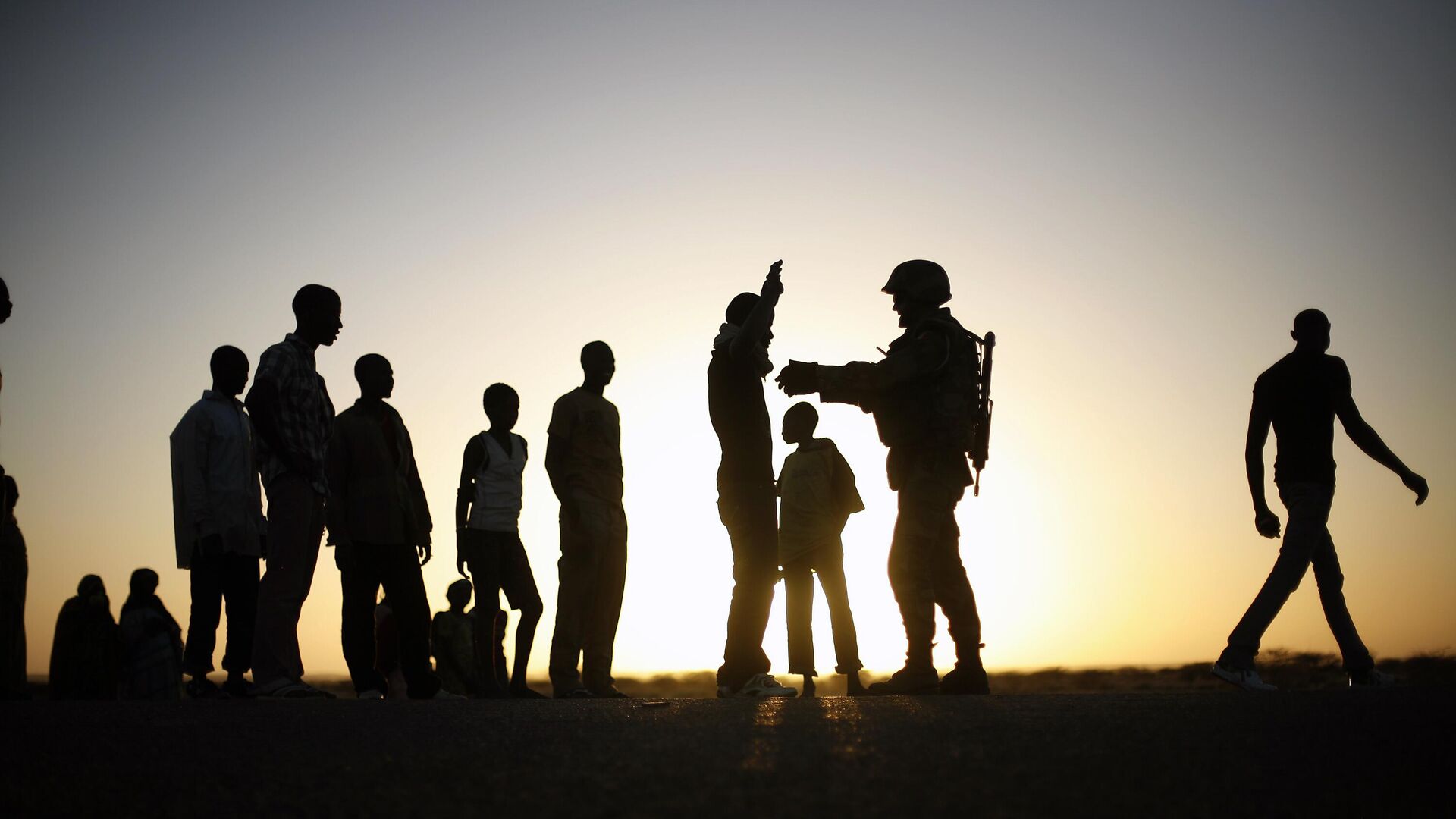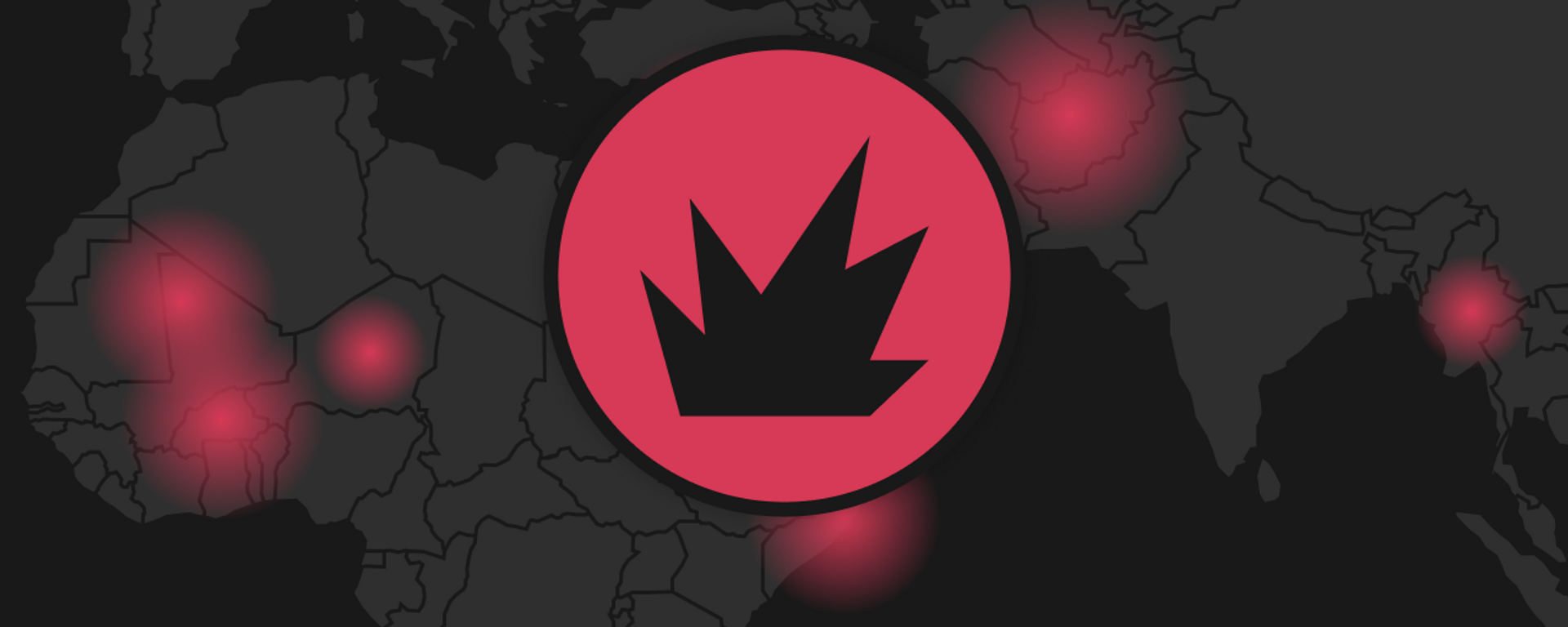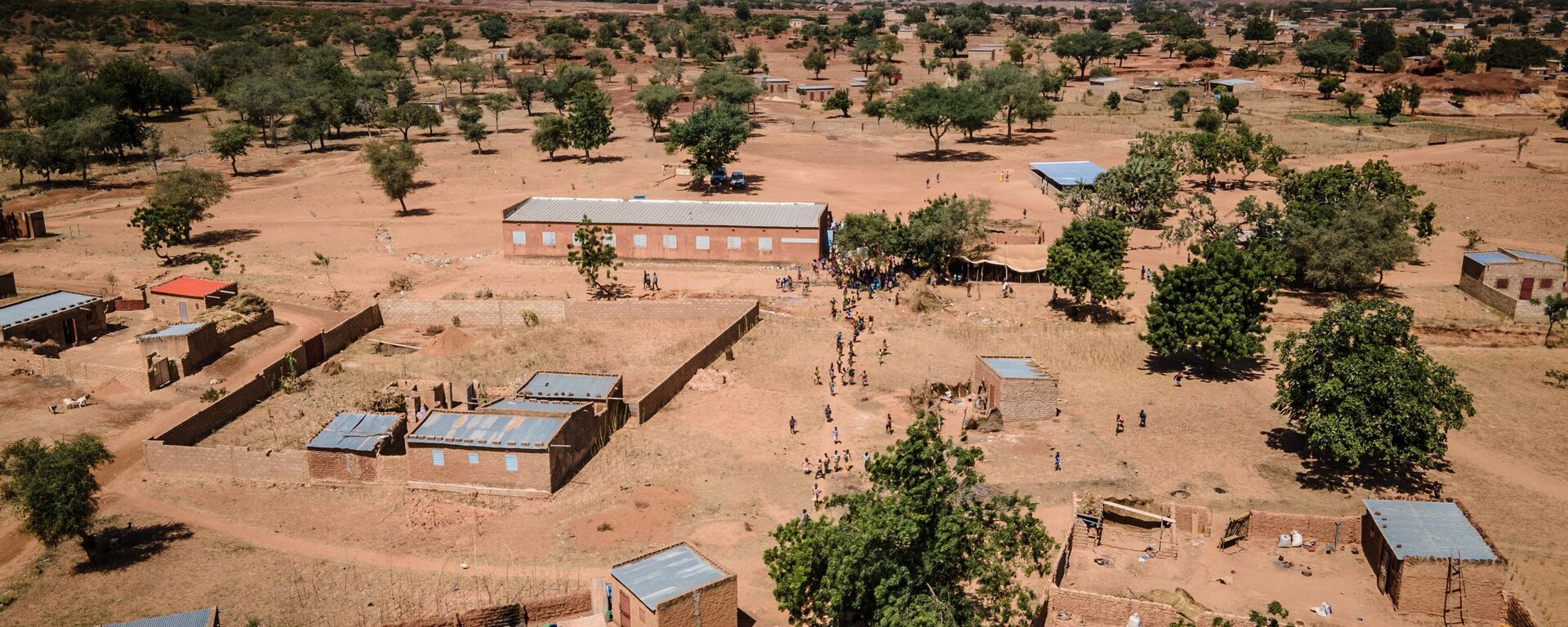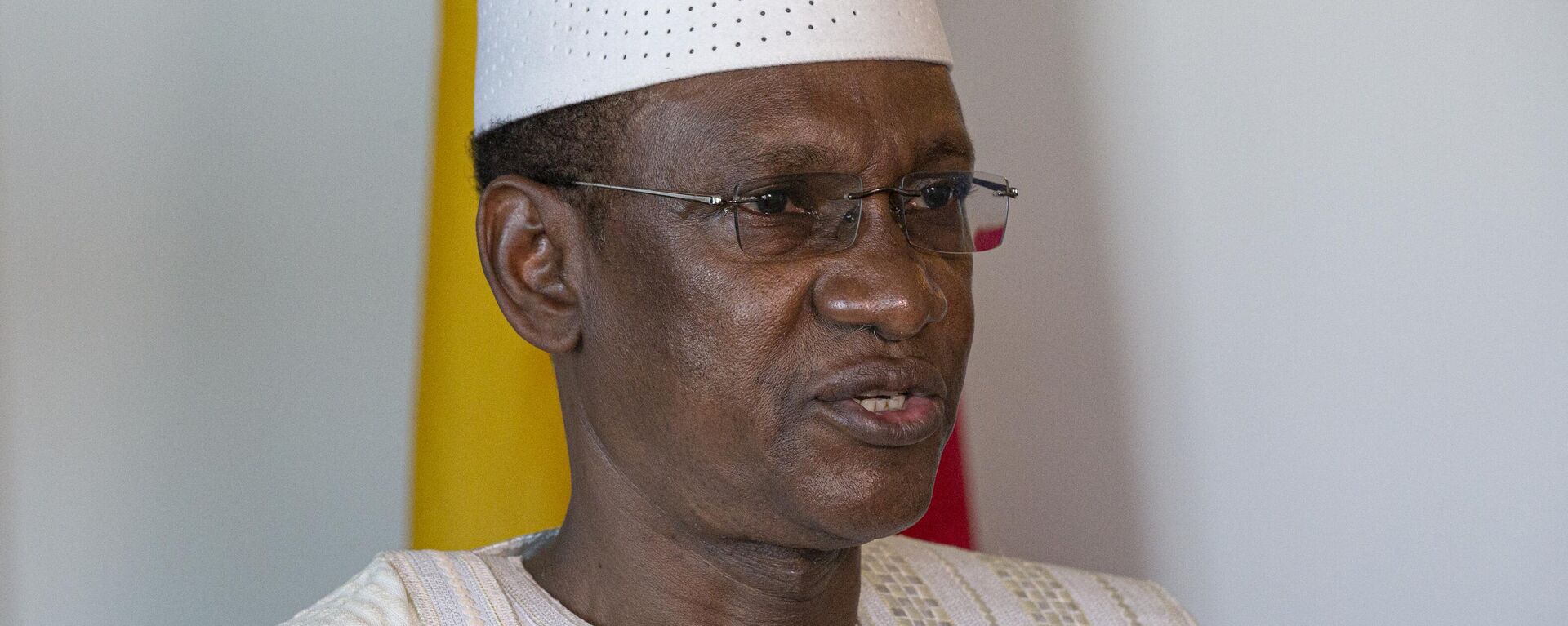https://sputnikglobe.com/20230324/intra-african-collaboration-best-way-to-tackle-terrorism-on-continent-says-expert-1108760961.html
Intra-African Collaboration Best Way to Tackle Terrorism on Continent, Says Expert
Intra-African Collaboration Best Way to Tackle Terrorism on Continent, Says Expert
Sputnik International
The best way for Africa to stop the spread of terrorism, especially in the highly-destabilized Sahel region, is through cooperation between different nations across the continent, instead of relying on foreign forces, says an expert.
2023-03-24T15:43+0000
2023-03-24T15:43+0000
2023-03-24T16:07+0000
africa
west africa
central africa
mali
burkina faso
chad
niger
mauritania
terrorism
france
https://cdn1.img.sputnikglobe.com/img/07e7/03/18/1108761917_0:66:3000:1754_1920x0_80_0_0_3b5f2ff1a4589005db0663d89639d89c.jpg
The best way for African countries to stop the spread of terrorism, especially in the highly-destabilized Sahel region, is through cooperation between different nations across the continent instead of relying on foreign forces, says Dr. Mady Ibrahim Kanté, lecturer at the Faculty of Administrative and Political Sciences of the University of Legal and Political Sciences of Bamako.Kante believes that the phenomenon of terrorism started in the African Sahel as a result of the failure of terrorist groups in the Middle East, including Al Qaeda* in Afghanistan and Daesh* in Iraq and Syria, to implement their ideology. According to the expert, the two terrorist organizations found better ground in the Sahel.Dr. Kante notes that different military forces, including troops of France, UN missions and regional G5 Sahel troops, were mobilized to the Sahel region, which includes Mali, Burkina Faso, Niger, Chad, and Mauritania, to fight terrorism. However, these different troops "couldn't fight properly" and "effectively" against terrorist groups. He adds that the terrorists continued rapidly spreading their activities in the region and their violence against the population has only grown.In addition, Kante adds that one of the factors behind the failure of the French forces in the region under the pretext of the antiterrorist "Operation Barkhane", launched by France in 2014, is the "affiliation of different groups together in the Sahel."According to him, following the creation of the G5 Sahel by five countries, Mali, Burkina Faso and Niger, Mauritania and Chad, four terrorist groups in Mali, specifically Ansar al Dine, Al-Mourabitoun, Al Qaeda in the Islamic Maghreb (AQIM) and Katiba Macina, decided to merge together and formed the so-called Jama'a Nasr al-Islam wal Muslimin (JNIM).The political expert listed Paris's failure to achieve "any result" from fighting terrorism in the region, despite its military presence in the Sahel for nearly a decade, as one of the main reasons, "why do Africans, especially the people in the Sahel, consider the French military presence in the Sahel to be neo-colonial or imperialist."Paris continued to say that France came to Sahel to fight against the terrorists and the French military died in the Sahel, forgetting that the Malian, Burkinabe and Nigerian troops "were also fighting for France before," Kante argues. Kante argues further that the people in the Sahel are able to see the level of support offered by France, along with other Western countries, to Ukraine upon the launch of Russia's special military operation there, and compare it to the interventions by French politicians in Sahel nations internal affairs under the pretext of fighting terrorism.Commenting on the fact that two countries in the Sahel region, namely Burkina Faso and Mali, have asked France to withdraw their troops from the countries' territories, and the possibilities Sahel countries could explore to combat terrorism, the doctor stresses the need to implement the African Union's new slogan, saying "African problems must be solved by Africans."To stay in Africa, and say that countries outside of the continent would come to fight against terrorism on the continent, is not a solution for Africa, Kante believes.The political scientist argues that the governments in Benin, Niger, and Togo should take a close look at the results of Mali's and Burkina Faso's cooperation with France and make conclusions. In conclusion, Kante notes that the best way to fight terrorism "is to collaborate and cooperate with African countries and then to build good and big forces against terrorism." He adds that another form of collaboration could be cooperation between security services of different African countries.
https://sputnikglobe.com/20230324/five-african-nations-rank-among-10-most-impacted-by-terrorism-1108747418.html
https://sputnikglobe.com/20230322/almost-quarter-of-schools-in-burkina-faso-closed-due-to-security-issues-ngo-says-1108671621.html
https://sputnikglobe.com/20230308/mali-considers-russia-reliable-partner-transitional-prime-minister-says-1108169883.html
africa
west africa
central africa
mali
burkina faso
chad
niger
mauritania
france
sahel region
Sputnik International
feedback@sputniknews.com
+74956456601
MIA „Rosiya Segodnya“
2023
Muhammad Nooh Osman
https://cdn1.img.sputnikglobe.com/img/07e4/08/0e/1080170965_2:0:2050:2048_100x100_80_0_0_1de8233c87df0979e7e74f61b6ffacad.jpg
Muhammad Nooh Osman
https://cdn1.img.sputnikglobe.com/img/07e4/08/0e/1080170965_2:0:2050:2048_100x100_80_0_0_1de8233c87df0979e7e74f61b6ffacad.jpg
News
en_EN
Sputnik International
feedback@sputniknews.com
+74956456601
MIA „Rosiya Segodnya“
Sputnik International
feedback@sputniknews.com
+74956456601
MIA „Rosiya Segodnya“
Muhammad Nooh Osman
https://cdn1.img.sputnikglobe.com/img/07e4/08/0e/1080170965_2:0:2050:2048_100x100_80_0_0_1de8233c87df0979e7e74f61b6ffacad.jpg
terrorism in africa, terrorism in sahel, terrorism in mali, terrorism in niger, terrorism in burkina faso, where does terrorism occur in africa? , what are some examples of terrorism in africa? , which african countries are fighting terrorism? , what causes extremism in africa?, countries impacted by terrorism,
terrorism in africa, terrorism in sahel, terrorism in mali, terrorism in niger, terrorism in burkina faso, where does terrorism occur in africa? , what are some examples of terrorism in africa? , which african countries are fighting terrorism? , what causes extremism in africa?, countries impacted by terrorism,
Intra-African Collaboration Best Way to Tackle Terrorism on Continent, Says Expert
15:43 GMT 24.03.2023 (Updated: 16:07 GMT 24.03.2023) Muhammad Nooh Osman
Writer/Editor
Earlier in the week, the Australia-based Institute for Economics and Peace (IEP) released its annual Global Terrorism Index, where it turned out that five African nations rank among the top ten most impacted by terrorism, while fatalities from terror attacks in Africa's Sahel region have surged by over 2,000% in the past 15 years.
The best way for African countries to stop the spread of terrorism, especially in the highly-destabilized Sahel region, is through cooperation between different nations across the continent instead of relying on foreign forces, says Dr. Mady Ibrahim Kanté, lecturer at the Faculty of Administrative and Political Sciences of the University of Legal and Political Sciences of Bamako.
Kante believes that the phenomenon of terrorism started in the African Sahel as a result of the failure of terrorist groups in the Middle East, including Al Qaeda* in Afghanistan and Daesh* in Iraq and Syria, to implement their ideology. According to the expert, the two terrorist organizations
found better ground in the Sahel.
"Another factor we talk about is the people in the Sahel. Most of the people in the Sahel, like in Mali, Burkina Faso, Niger, Chad, even in Mauritania, can get more villages, more areas or localities out of control of the central power of the state," the political scientist says. "I think for the terrorists, it is important to come to this area and to talk to these people, to show them that the group is here to support them, to help them."
Dr. Kante notes that different military forces, including troops of France, UN missions and regional G5 Sahel troops, were mobilized to the Sahel region, which includes Mali, Burkina Faso, Niger, Chad, and Mauritania, to fight terrorism. However, these different troops "couldn't fight properly" and "effectively" against terrorist groups. He adds that the terrorists continued rapidly spreading their activities in the region and their violence against the population has only grown.
"When the French came to the Sahel, especially to Mali, terrorism was just in the North of Mali, like in Timbuktu, Gao and Kidal. But during this time when we could observe the presence of French troops in Mali, terrorism spread to the central and southern parts of Mali, like Segou and Sikasso and even to Bamako," he states.
In addition, Kante adds that one of the factors behind the failure of the French forces in the region under the pretext of the antiterrorist "Operation Barkhane", launched by France in 2014, is the "affiliation of different groups together in the Sahel."
According to him, following the
creation of the G5 Sahel by five countries, Mali, Burkina Faso and Niger, Mauritania and Chad, four terrorist groups in Mali, specifically Ansar al Dine, Al-Mourabitoun, Al Qaeda in the Islamic Maghreb (AQIM) and Katiba Macina, decided to merge together and formed the so-called Jama'a Nasr al-Islam wal Muslimin (JNIM).
"When they created this alliance, they continued to go outside of Mali, to Burkina Faso, to Niger, and even to Benin and other countries like Cote d'Ivoire," Kante notes. "So these troops that were fighting against terrorism in Mali were not like the Malian government hoped. They didn't find a solution for the problem of fighting against terrorism in Mali."
The political expert listed Paris's failure to achieve "any result" from fighting terrorism in the region, despite its military presence in the Sahel for nearly a decade, as one of the main reasons, "why do Africans, especially the people in the Sahel, consider the French military presence in the Sahel to be neo-colonial or imperialist."
Paris continued to say that France came to Sahel to fight against the terrorists and the French military died in the Sahel, forgetting that the Malian, Burkinabe and Nigerian troops "were also fighting for France before," Kante argues.
"I think this is the different mentality that comes from French politicians on the situation of the Sahel," the scholar says, noting that nowadays the people "know everything" thanks to internet and social media. "So even if you say something in French, it will be translated into local languages so that people know all the things that you said about Mali, about the Sahel, about military presence in the Sahel and Mali."
Kante argues further that the people in the Sahel are able to see the level of support offered by France, along with other Western countries, to Ukraine upon the launch of Russia's special military operation there, and compare it to the interventions by French politicians in Sahel nations internal affairs under the pretext of fighting terrorism.
"So they say directly that the people in the French military in the Sahel, they come on behalf of neo-colonialism, not to support us. Because, if it was to support the country, the state of things in the Sahel, they could do exactly what they are doing now for the Ukrainian government. That is, financial support, and arms and equipment support for the state, for the local military in Mali and in the Sahel to fight against terrorism," he assumes.
Commenting on the fact that two countries in the Sahel region, namely Burkina Faso and Mali, have asked France to withdraw their troops from the countries' territories, and the possibilities Sahel countries could explore to combat terrorism, the doctor stresses the need to implement the African Union's new slogan, saying "
African problems must be solved by Africans."
To stay in Africa, and say that countries outside of the continent would come to fight against terrorism on the continent, is not a solution for Africa, Kante believes.
"I think this is just on paper, but not on the ground, because until now we see different interventions from outside the continent to try to fight against any conflict or any situation on the continent," Kante assumes. "But I think if the countries make a good decision and good hopes to mobilize different militaries from our countries in Africa, that will be the best way to fight the terrorist threat on the continent in general."
The political scientist argues that the governments in Benin, Niger, and Togo should take a close look at the results of Mali's and Burkina Faso's cooperation with France and make conclusions.
In conclusion, Kante notes that the best way to fight terrorism "is to collaborate and cooperate with African countries and then to build good and big forces against terrorism." He adds that another form of collaboration could be cooperation between security services of different African countries.








